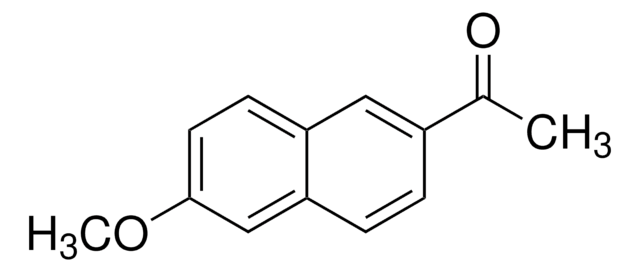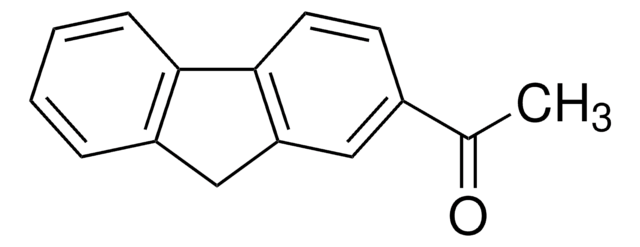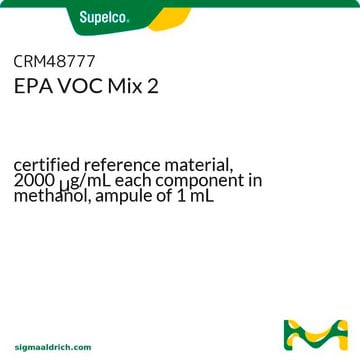MABN2655
Anti-Kynurenine Antibody, clone 11F9
Sinónimos:
(2S)-2-Amino-4-(2-aminophenyl)-4-oxo-butanoic acid
About This Item
Productos recomendados
biological source
mouse
Quality Level
antibody form
purified antibody
antibody product type
primary antibodies
clone
11F9, monoclonal
mol wt
calculated mol wt 208.22 kDa
observed mol wt ~65 kDa
purified by
using protein G
species reactivity
human
species reactivity (predicted by homology)
all
packaging
antibody small pack of 100 μg
technique(s)
western blot: suitable
isotype
IgG1κ
epitope sequence
Unknown
Protein ID accession no.
UniProt accession no.
storage temp.
2-8°C
General description
Specificity
Immunogen
Application
Evaluated by Western Blotting with Kynurenine modified Bovine serum albumin (BSA).
Western Blotting Analysis (WB): A 1:20,000 dilution of this antibody detected Kynurenine modified BSA, but not the unmodified BSA.
Tested applications
ELISA Analysis: A representative lot detected Kynurenine in ELISA applications (Staniszewska, M., et al. (2007). J Immunol Methods. 324(1-2); 63-73).
Immunocytochemistry Analysis: A representative lot detected Kynurenine in Immunocytochemistry applications (Staniszewska, M., et al. (2007). J Immunol Methods. 324(1-2); 63-73).
Western Blotting Analysis: A representative lot detected Kynurenine in Western Blotting applications (Staniszewska, M., et al. (2007). J Immunol Methods. 324(1-2); 63-73).
Immunohistochemistry Applications: A representative lot detected Kynurenine in Immunohistochemistry applications (Staniszewska, M., et al. (2007). J Immunol Methods. 324(1-2); 63-73).
Note: Actual optimal working dilutions must be determined by end user as specimens, and experimental conditions may vary with the end user.
Physical form
Storage and Stability
Other Notes
Disclaimer
¿No encuentra el producto adecuado?
Pruebe nuestro Herramienta de selección de productos.
Storage Class
13 - Non Combustible Solids
wgk_germany
WGK 1
flash_point_f
Not applicable
flash_point_c
Not applicable
Certificados de análisis (COA)
Busque Certificados de análisis (COA) introduciendo el número de lote del producto. Los números de lote se encuentran en la etiqueta del producto después de las palabras «Lot» o «Batch»
¿Ya tiene este producto?
Encuentre la documentación para los productos que ha comprado recientemente en la Biblioteca de documentos.
Nuestro equipo de científicos tiene experiencia en todas las áreas de investigación: Ciencias de la vida, Ciencia de los materiales, Síntesis química, Cromatografía, Analítica y muchas otras.
Póngase en contacto con el Servicio técnico








